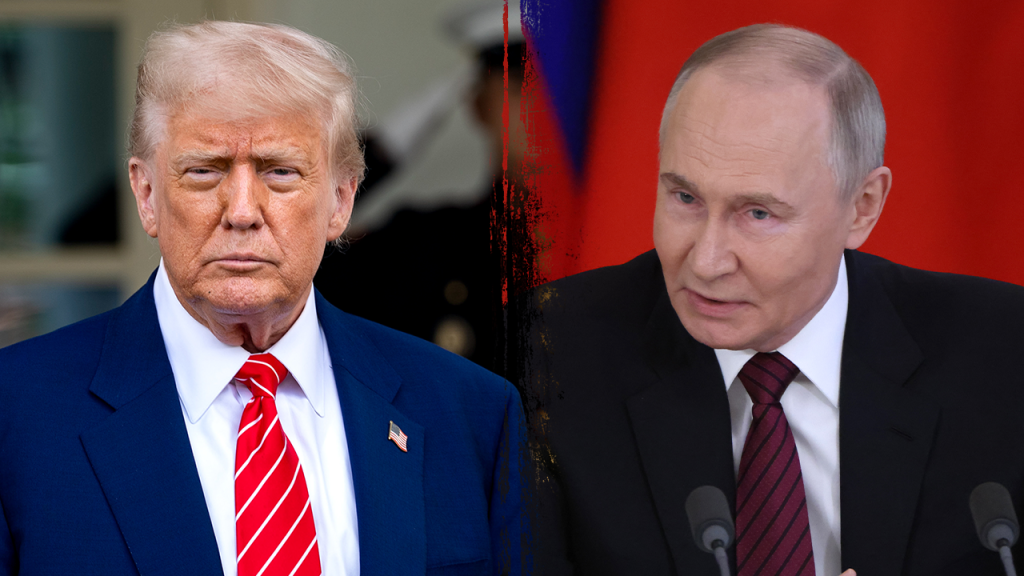On a significant diplomatic front, President Donald Trump engaged in a two-hour phone call with Russian President Vladimir Putin, aiming to quell the ongoing conflict in Ukraine. Both leaders portrayed the discussion positively, although the specifics of any outcomes remain vague. Trump expressed optimism about initiating ceasefire negotiations, while Putin emphasized the need for mutual compromises to facilitate peace.
| Article Subheadings |
|---|
| 1) Overview of the Call |
| 2) Statements from Both Leaders |
| 3) Ceasefire Challenges |
| 4) International Response |
| 5) Future Negotiations |
Overview of the Call
The phone call between President Donald Trump and President Vladimir Putin took place on a Monday, marking a pivotal moment in the protracted conflict in Ukraine. As the war continues, U.S. officials emphasized that the main goal of this discussion was to advocate for a cessation of hostilities from the Russian side. The dialogue lasted for two hours, and while the leaders touted the conversation’s potential for fostering peace, the tangible results of the call were not immediately evident.
The gravity of the situation necessitates diplomatic engagement, particularly in light of the escalating humanitarian crisis in Ukraine. The conflict has already led to thousands of deaths and the displacement of millions, prompting calls from international leaders for a resolution. Hence, the focus on this call underscores an urgent need for proactive measures to stabilize the region.
Statements from Both Leaders
Following the call, both Presidents characterized the conversation as productive. Trump made several public statements on social media, asserting that the call had gone “very well.” He went on to claim that both Russia and Ukraine would “immediately” initiate negotiations to reach an agreement for a ceasefire and ultimately an end to the war. “The conditions for that will be negotiated between the two parties,” Trump stated, emphasizing that only the involved nations possess intimate knowledge of the intricacies of the negotiations.
On the Russian side, Putin expressed a willingness for a ceasefire, stating that it “is possible if mutual compromises are found.” However, he stressed that this would require concessions from both parties. Despite these optimistic statements, the specifics of what those compromises entail remain vague, indicating that a lot of groundwork still requires deliberation before any real progress can be made.
Ceasefire Challenges
Despite the optimistic tone of the call, the pathway to achieving a ceasefire appears obstructed by significant challenges. Recent negotiations in Turkey, which were aimed at fostering peace talks, collapsed when the Ukrainian delegation rejected demands from their Russian counterparts as “unacceptable.” These demands reportedly included calls for Ukraine to withdraw its military presence from regions illegally annexed by Russia in 2022, including Kherson, Donetsk, Luhansk, and Zaporizhzhia.
The complexities of the situation further intensified following the phone call when Russia continued its military actions, with recent reports indicating drone attacks shortly after Trump announced the discussions. This development raises questions about the sincerity of Russia’s intentions regarding peace negotiations and complicates efforts to establish a stable dialogue. As the situation evolves, the urgency for a multi-faceted approach to negotiations becomes increasingly apparent.
International Response
In response to Trump’s outreach, a number of international leaders were informed about the phone call. Trump claimed to have immediately notified Ukrainian President Volodymyr Zelenskyy, as well as European Commission President Ursula von der Leyen, French President Emmanuel Macron, German Chancellor Friedrich Merz, and others. However, none of these leaders immediately voiced their reactions to the media regarding the call.
Moreover, Trump indicated that the Vatican, represented by the Pope, expressed interest in potentially facilitating peace talks. This international dimension highlights the complex interplay of factors influencing the potential for diplomatic resolutions. As various global leaders weigh in, it becomes critical for the involved parties to consider multifaceted perspectives on peace-building strategies.
Future Negotiations
Trump expressed readiness to initiate the dialogue process, urging a formal beginning to negotiations aimed at ending the war. His statement, “Let the process begin,” signals a renewed commitment to mitigating the ongoing conflict. However, it is worth noting that attempts at mediation by the U.S. commenced as early as March, indicating a sustained effort to facilitate dialogue.
The Pope’s emphasis on dialogue was echoed in his public statements, advocating for leaders to meet and genuinely engage in discussions. While the support from international figures might bolster the chances of negotiations, the real question remains whether both Russia and Ukraine are willing to make the necessary compromises to work toward lasting peace.
| No. | Key Points |
|---|---|
| 1 | Trump and Putin held a two-hour call aimed at negotiating peace in Ukraine. |
| 2 | Both leaders expressed optimism regarding the discussions but offered few details on outcomes. |
| 3 | Challenges to a ceasefire remain, especially following the collapse of Turkish negotiations. |
| 4 | International leaders are being informed and involved in potential peace efforts. |
| 5 | The Vatican has shown interest in hosting peace talks, indicating broader international support. |
Summary
This recent dialogue between Trump and Putin highlights the pressing need for diplomatic engagement in the ongoing conflict in Ukraine. While both leaders have emphasized a willingness to pursue negotiations, substantial challenges persist in defining the terms of a potential ceasefire. The evolving international context and foray into negotiations underscore the complexity of achieving lasting peace in a region fraught with tension.
Frequently Asked Questions
Question: What were the main goals of the Trump-Putin call?
The call primarily aimed to foster negotiations for a ceasefire and an eventual end to the ongoing conflict in Ukraine.
Question: What challenges do ceasefire negotiations face?
Ceasefire negotiations currently face significant challenges, including conflicting demands from both sides, particularly regarding territorial issues and military presence in annexed regions.
Question: How has the international community reacted to the developments?
Various international leaders have been informed of the call, expressing interest in facilitating negotiations, including potential involvement from the Vatican.
